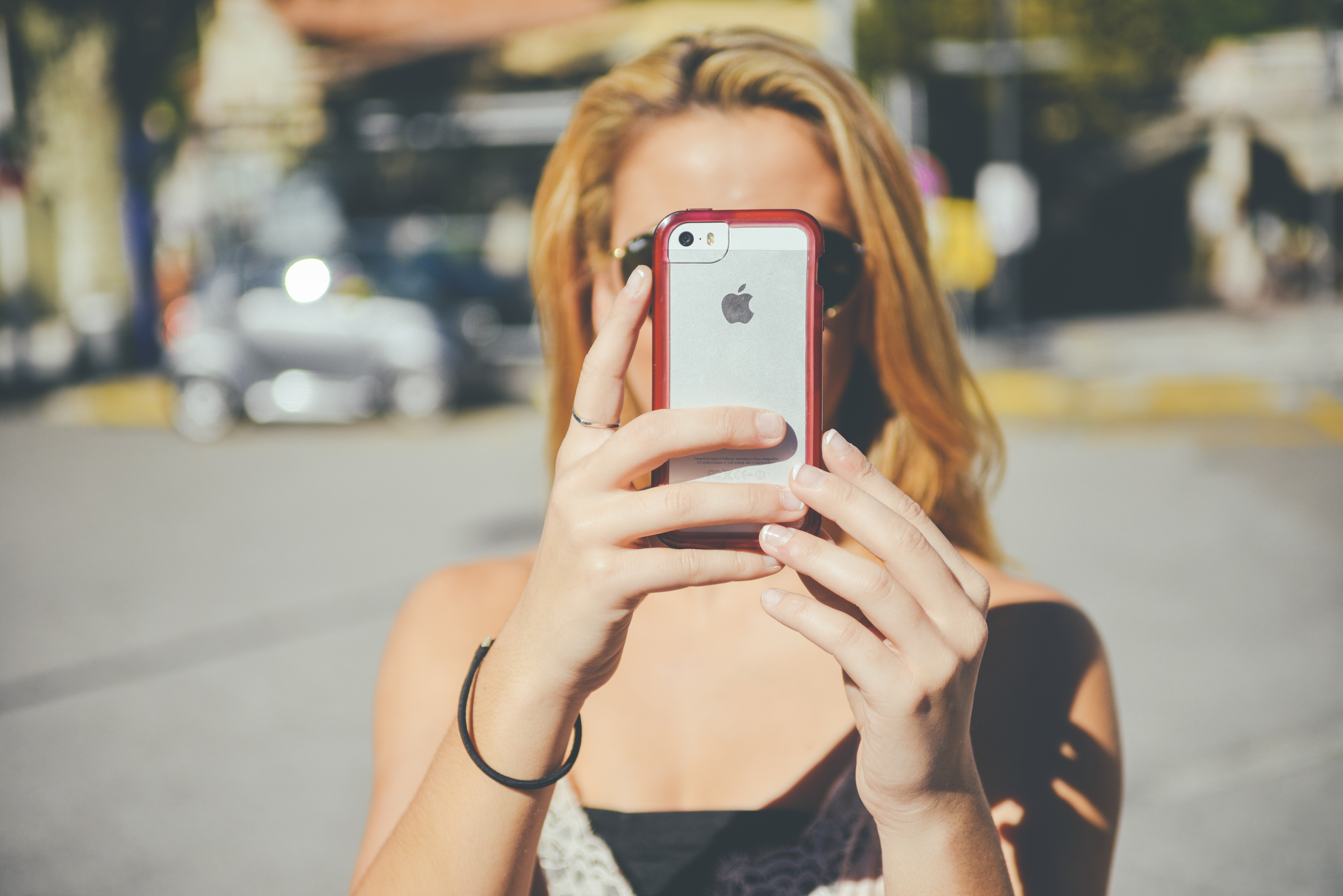“It is seeing which establishes our place in the surrounding world. The relationship between what we see and what we know is never settled…The reciprocal nature of vision is more fundamental than spoken dialogue.” –John Berger, Ways of Seeing
“My selfies give me power.” —Kim Kardashian
Understanding the Psychology of “Selfies”
Selfies-self-generated portraits-are ubiquitous in the digital age. Like many aspects of social media, selfies serve a useful social function, but if misused can be damaging to an individual’s well-being. While it is common to think of selfies as harmless “peacocking,” the associated need for validation by one’s peers, along with other people’s perceptions of the intent of the selfie, can lead to a cycle of self-doubt and misunderstanding. If someone does not get the validation they seek from posting selfies, it can lead to anxiety, depression, and other forms of mental illness.
In essence, selfies are vehicles for creating personal brands. A selfie is a consummate opportunity for control. The visual elements for a selfie are under the control of its maker: expression, posture, props, and context. But the key insight from Berger’s Ways of Seeing is that the unseen aspect of an image is equally important as what is seen. By engaging with the outside world, a person taking a selfie is engaging with her surroundings, and cannot control other people’s reactions and perceptions of the intent of the selfie.
For example, if a person is attempting to lose weight and posts a selfie from their workout seeking affirmation for how hard they are working or how good they look, and instead gets a snarky comment on social media about their outfit, it can have a strong, negative impact. The element of control desired by selfie posters has the potential to harshly conflict with their own self image.
Celebrities like Kim Kardashian who are (generally) adored by a huge fan base, have an unfair advantage when it comes to selfies: they can risk exposing their unflattering and intimate moments because even those will elicit positive responses. In addition to noting how selfies make her feel powerful, Kardashian noted “even if I’m objectifying myself–I’m ok with that.” Only someone with an enormous reservoir of self-confidence can publicly present themselves this way. And this is precisely the danger: an adolescent girl or someone without as much confidence is at risk if they attempt to mimic the selfie behavior of a celebrity like Kardashian. Since selfies are inherently revealing, their overuse can quickly go from innocent to exhibitionist, with an increasing spiral of reckless posting behavior, and equally provocative and potentially damaging consequences.
A Healthier Selfie
What then, can selfies do in a positive sense? Since validation and connection to community are universal needs, selfies can provide a way to gain support and motivation from like-minded individuals. Curtailing the frequency of postings and using self-deprecation (as opposed to self-pity or overtly self-critical terminology) as a form of diffusing the self-preening aspect of selfies can help promote goodwill and positive responses from online connections. The psychologist Pamela Rutledge has suggested that selfies can enable a sense of fun, play, and adventure in a social way. It can be enriching to share experiences, but it is best to do it in a modest way that engages others, and avoids boastful, self-indulgent messaging.
Berger’s brilliance about what is not seen can be helpful before taking a selfie. While a selfie may simply be a snapshot in time, there is always much deeper meaning that lies beyond the image itself.
Selfies, Social Media and Mental Health
I published an earlier post about the impact of social media on mental health because it is a growing area of concern for many people. I have treated many patients who have had challenges and problems integrating social media into their lives, and would be delighted to discuss your personal situation with you.
For additional information, please feel free to email our office at Amanda.Itzkoff@gmail.com. To schedule an appointment, call our offices at 917-609-4990.

